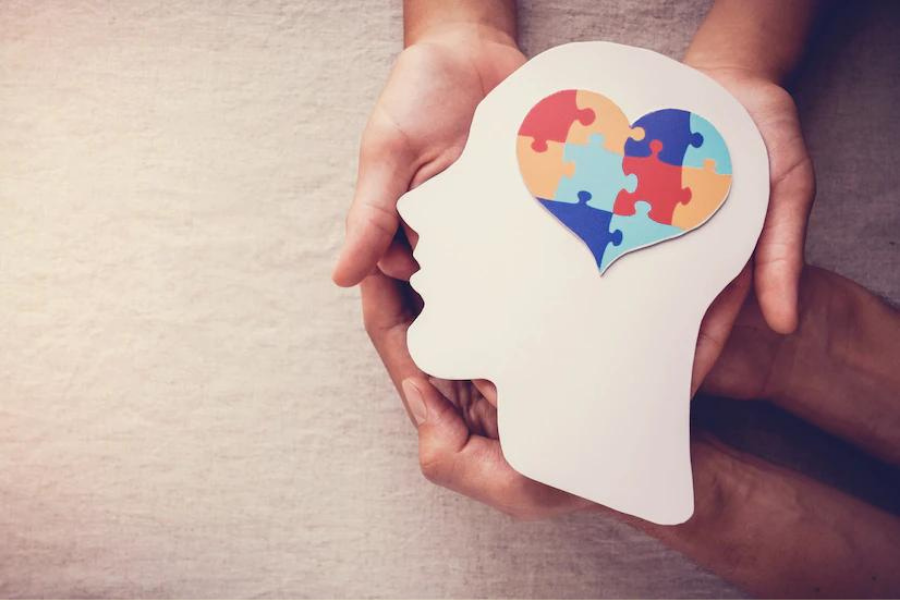
Impact Of Covid-19 On Development Of Kids With Autism
1 Apr 2022 | 4 min Read
Baby Chakra
Author | 501 Articles
In a recent survey by CDC, and Autism and developmental disabilities monitoring network (ADDM), about 1 in 44 children has been identified with autism spectrum disorder (ASD) and in India roughly around 23 in 10,000 children have autism. It is 4 times more common in boys than among girls.
Autism is a Neuro- developmental disorder that affects 2-7% of children worldwide. According to DSM-5, ASD is characterised by difficulties in social communication, restricted/ repetitive and sensory behaviours. There are few red flags to be looked upon such as poor eye contact, poor response to name call, repetitive play manner, poor social interaction and sensory seeking behaviour.
Like sensitivity to loud noises, accepting different textures, sensitivity to swings, or movements. It may sometimes be associated with mental and behavioural problems such as intellectual impairment, motor coordination, visual-perception impairment and sleep problems.
The consequences of the breakdown of Covid-19 pandemic worldwide have impacted every individual whether children or adults but these special children with Neuro- developmental disorders including ASD were more vulnerable to risks from it.
It has been observed that this has affected their physical activities, irregular sleep, and increased screen -time. Isolation (locked in their houses, no interaction or engagement with peers and the environment) has impacted their ability to communicate and has decreased their social and emotional development.
These children mostly follow a specific routine and accepting new form of routine like following social distancing, wearing mask (as these special kids have sensory issues such as tactile hypersensitivity which made it difficult to accept different texture on the face), isolation/quarantine and following regular hand hygiene, has created lot of behavioural and sensory issues such as irritation, aggression, hyperactivity, meltdowns(crying spells, temper tantrums) poor self-regulations, sensory overloading, and processing the new information.
These children avail many primary treatments such as Occupational therapy, speech therapy, schooling /special schooling and other life skills building activities. Due to the pandemic everything came to a halt. Many children were deprived from seeking rehabilitation, and some of the children began to attend online therapies and schooling and many opted for home-based schooling.
This new form of accepting routine has created many behavioural issues like hitting self, banging head on walls, biting, throwing and snatching and stereotypical behaviours like flapping of hands, corner vision, inappropriate laughing were reported by parents with online sessions with occupational therapists.
Parents faced a lot of stress and anxiety as they could not cope from fear of Covid-19 themselves and the behavioural changes they saw in their children. There was no solution to how to deal simultaneously with household chores, working from home and making their child engage in meaningful and structured play.
They could not take them out for outdoor physical activities or one to one therapy sessions. When over the months of regular therapies there had been an optimal independent functioning in these children which was observed to have regressed.
Along with the negative impact of Covid -19, there have been some positive impacts of quarantine to parents and children with special needs in the form of tele-therapy (online therapy sessions) as we all began to accept the new normal.
These special children also started accepting online medium through these sessions as they started recognizing their therapist, with whom they had built a rapport earlier. This helped with strategies just not to regulate themselves but also enhance their cognitive, fine motor coordination, and perception skills through play. Which brought some relief to parents and channelized their anxiety?
It was a pleasure for children, parents and therapists to see betterment and improvement in their behaviours and social and communications skills once they started attending offline therapies at the centre.
Authored by Dr. Sakina Pipewala
Occupational therapist, Certified sensory integration therapist (USA)
Masina Hospital, Mumbai
A


Suggestions offered by doctors on BabyChakra are of advisory nature i.e., for educational and informational purposes only. Content posted on, created for, or compiled by BabyChakra is not intended or designed to replace your doctor's independent judgment about any symptom, condition, or the appropriateness or risks of a procedure or treatment for a given person.
